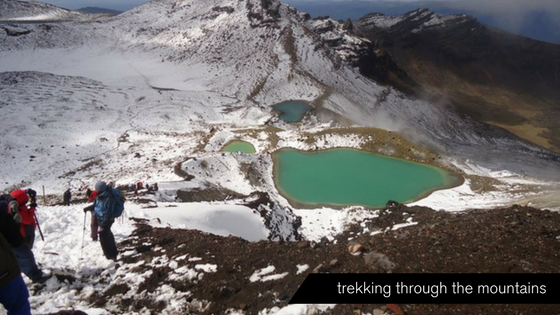
March 7, 2017, by Carla
Five Ways Travelling Can Enhance Your Career Options
By Ryan Neal, Student Communications Officer at The University of Nottingham, Editor at onemetal.com and a freelance copywriter
It’s June 2010, roughly two weeks before graduation and I’m sat in the Careers office on D floor of the Portland building trying to work out what I want to do with my life. I’m about to graduate with a degree in English studies and, as many arts students will be able to empathise with, have recently been fielding a lot of, “So. Do you want to be a journalist or a teacher?” questions.
I wanted to be neither.
But I didn’t know what I did want to be, so I made the only sensible decision. I withdrew all of my hard-earned savings, packed my bag and took off to the other side of the world. A clear attempt at postponing the inevitability of making a grown up decision. Much to my surprise, it turned out to be one of the best CV-building activities I’ve ever undertaken. Here are five things you can do while travelling to enhance your career options.
1. Get an internship or holiday job
During my travels I took a month out in Perth, Australia to intern at a local newspaper. I was only in the office for four weeks but the skills and experience I gained were invaluable, especially the experience of living and working abroad. When I returned to the UK, I was contacted by multiple international companies looking for English speakers who had experience working abroad. It ended up kick-starting a career in international marketing.

2. Keep a travel blog
The skills required to maintain a blog are highly sought after by employers – especially if you’re looking to go into anything editorial or content related. You’ll develop strong writing skills and gain experience using a content management system. Blogging also involves planning and developing engaging content, and promoting your material. This process will help you develop transferable skills that are useful in so many career paths, be it marketing, business, PR, science communications or many more.
3. Add another language to your arsenal
If you’re planning to anchor down in Hanoi for ten months, why not spend some time learning Vietnamese? With small to medium businesses increasingly trying to reach an international audience, speaking a second language is very appealing to employers.
4. Learn a new skill
It doesn’t even have to be academic. Perhaps you’re spending a few months in Bali or island hopping in Thailand? This is a perfect opportunity to pick up a new skill, such as surfing or scuba diving. A temporary job as a diving instructor or on the reception desk of a local surf school can lead to more high-profile positions in the company’s business development or marketing teams, which in turn may propel you into related industries when you return to rainy old England.

5. Evaluate your experiences
When you get home, think about all of the skills you’ve utilised while travelling and make sure you include them on your CV. Your trip will have required sharp budgeting skills and a strong element of planning and research. Did you travel alone? Independence and confidence. Maybe you experienced a variety of different cultures; adaptability and communication. It takes a very particular set of skills to travel, all of which are attractive to potential employers.
Above all, what I want to say is that it’s okay not to know what you want to do after university. It’s alright to take some time out for yourself – perhaps that’s travelling or perhaps it’s just time spent working on a hobby or learning something less academic. Taking time to develop yourself will inevitably allow you to develop skills for your future and will open new doors.
Graduating in 2017? If like Ryan, you’re still unsure about your next steps, we’re here to help. Take a look at our Class of 2017 resources here. Get expert help whether you need your CV looking over, want advice on working abroad or think a graduate internship is for you.
Previous Post
What Can You Expect on a Graduate Internship?Next Post
How to Become a Student EntrepreneurNo comments yet, fill out a comment to be the first

Leave a Reply